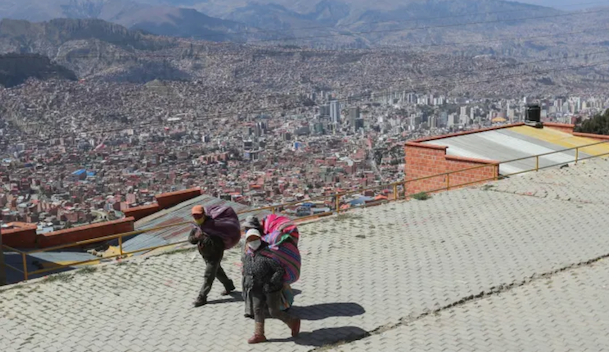Scientists probe link between high altitude and low coronavirus cases

Maduro risks backlash by increasing Venezuela’s petrol prices
01 Jun 2020
Colombia’s president bets on ‘speedy recovery’ after coronavirus shock
07 Jun 2020
Bolivian team seeks to understand why low-lying areas have been hit harder than cities on higher ground
Gideon Long in Bogotá and Camilla Hodgson in London
Scientists are investigating links between coronavirus cases and high altitude, after a study suggested that those living well above sea-level were more resistant to the virus than lowland dwellers.
Bolivian researchers are seeking to understand why La Paz, the country’s capital at 3,600 metres above sea level, has suffered relatively few virus fatalities, while its low-lying second city, Santa Cruz, and the surrounding province have been hit hard.
One reason could be that those living at altitude have developed a resilience to the low levels of blood oxygen that the virus can cause — a condition known as hypoxia. Mountaineers who are not acclimatised to oxygen-thin air can suffer the same problem, but people who are used to living high above sea-level have adapted.




